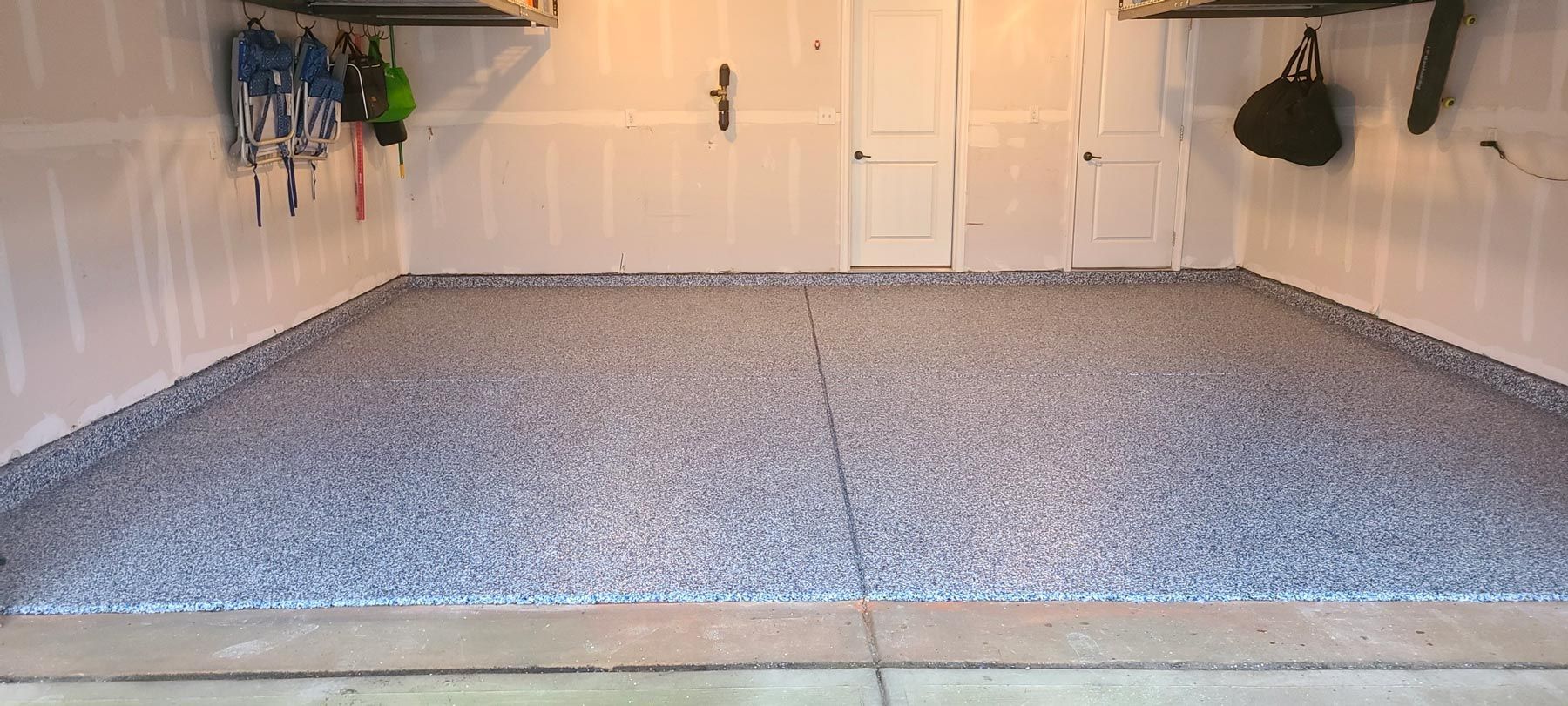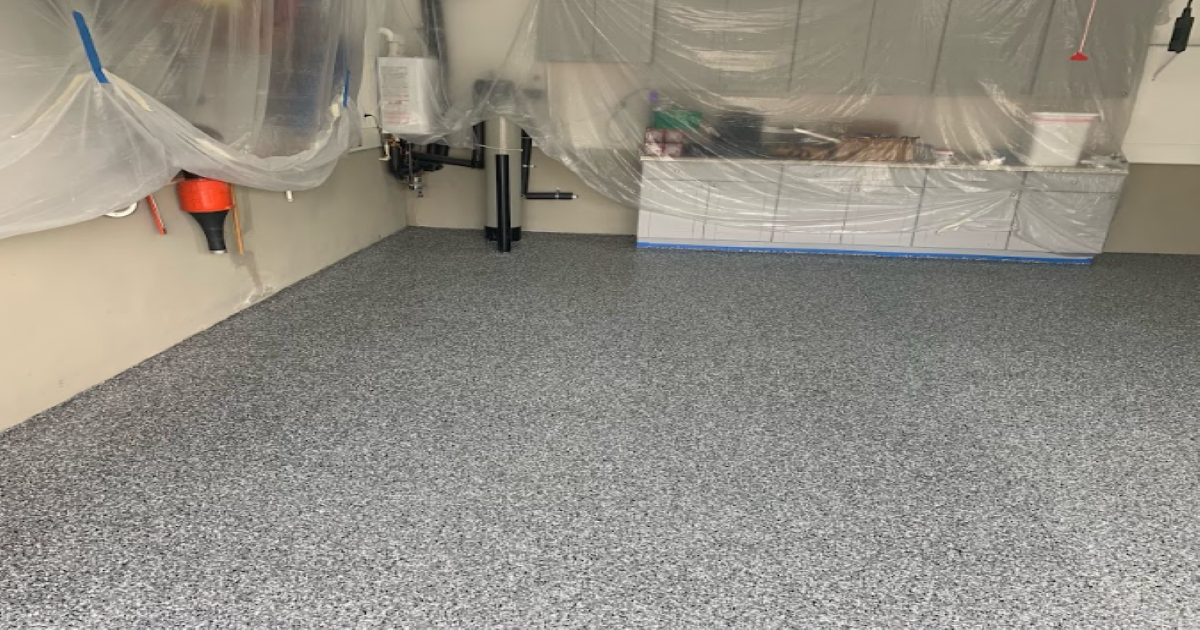Discover The Different Types of Commercial Coatings and Their Uses
Commercial coatings protect various products and surfaces from corrosion, wear and tear, water, fire, decay, UV light, and much more. These coatings also give the coated surface or product a colorful and aesthetic appearance.
Whether you use your commercial space for storage, manufacturing, distribution, or other commercial applications, you’ll find commercial coatings for virtually every type of surface. These coatings essentially refer to a type of paint applied on surfaces like concrete or steel.
Commercial coatings primarily protect the surfaces beneath them. However, different coatings have varying properties that make them ideal for different purposes. To get the best results, it helps to understand the different types of commercial coatings and their applications.
The most common types of commercial coatings include:
Epoxy Coatings
Epoxy coatings typically comprise an epoxy base and a curing agent. These coatings work well for interior or submerged commercial applications. Epoxy boasts abrasion and chemical resistance and can withstand high temperatures.
Many commercial facilities choose epoxy because it’s:
- About three times stronger than bare concrete
- Safer than slippery polished concrete
- Cost-effective, long-lasting, shock-resistant, and waterproof
- High sheen reflects light and improves visibility, creating a safer working environment
Unfortunately, epoxy coatings chalk when exposed to sunlight. A reliable commercial painting company will often apply industrial epoxy coatings in three layers: a primer, epoxy, and an epoxy binder or polyurethane topcoat to finish the coating process.
Polyurethane Coatings
Polyurethane coatings perform exceptionally well in various commercial environments, and most facilities use them as a final protective topcoat. Polyurethanes generally fall into aliphatic and aromatic categories.
Aliphatic polyurethanes, such as polyaspartic coatings, perform well in sunlight and provide excellent color retention. Aromatic polyurethanes, on the other hand, chalk and weather when exposed to sunlight, making them suitable for interior or submerged environments.
Polyurethane coatings excel at abrasion resistance and protect applications against harsh environmental conditions. These coatings can handle various commercial applications. You’ll often find polyurethane coatings in garages, shopping centers, office buildings, and other high-traffic areas.
Other potential applications include locks, dams, the exterior of waste treatment facilities, and the topside of ships.
Advantages of polyurethanes include:
- Abrasion resistance
- Excellent performance against weathering and UV light
- High gloss and color retention
Besides the slightly higher cost compared to epoxy, the most apparent drawback of polyurethane coatings is that they require a meticulous industrial painting process for proper application.
Polysiloxanes
Polysiloxane coating systems provide excellent appearance retention, abrasion, and weather resistance. However, these coatings lack the corrosion resistance and flexibility that commercial environments require.
Combining the benefits of polysiloxanes and epoxies provides superior, commercial-grade weather, abrasion, chemical, UV, and corrosion resistance. Although epoxy polysiloxane coatings cost more than epoxies and polyurethanes, you can apply them more quickly. The epoxy polysiloxane hybrid also offers better durability for many commercial applications.
Benefits of Polysiloxane coatings include:
- Excellent color and gloss retention
- Excellent weather and abrasion resistance
- Allow for two-coat rather than three-coat applications
- Outstanding performance when exposed to sunlight
- High maximum service temperature
The major disadvantage of polysiloxane coatings is their high material costs. Imperfect color matching may also make touch-ups visible.
Zinc-rich Coatings
Zinc-rich coatings refer to a generic type of coating that’s organic (contains epoxy and polyurethane binders) or inorganic (contains silicate binders) with high loadings of zinc dust. These coatings provide a polymeric and galvanic barrier, making them effective for steel parts that require correction and abrasion resistance.
Commercial painting contractors often use zinc-rich coatings in highly corrosive environments like bridges, the topside of ships, and coal plants.
Selecting Commercial Coatings for Your Application
Ultimately, choosing commercial coatings best suited for your commercial application depends on factors such as material cost, expected labor costs, accessibility, and the coating system’s service life.
You should also choose a coating system well-equipped to handle the environmental conditions of the commercial space, whether it’s harsh chemicals, heat, sunlight, or constant abrasions.
Are you looking for an industrial painting contractor for your commercial painting project? Look no further than Southeast Floor Maintenance.
We use a polyaspartic base coat and polyaspartic topcoat in winter to guarantee the best results. During normal days, we use an epoxy base and a polyaspartic topcoat. We also stand behind our work with a 10-year warranty on commercial products.
Claim Your Free Quote
Contact Southeast Floor Maintenance for superior commercial coatings. Our commercial and residential painting experts will evaluate the specific needs of your application and help you select a system that works best for your needs. Dial (704) 932-1122 today for a free quote.


Contact Us Today!
We have the team and experience to make your floor look its best. Call us at 704-932-1122 or get a free quote online.
Our company’s goal and vision is to provide our customers with very good floor systems that provide them with the look and function they desire while meeting their budgets.
From epoxy flooring, one-day concrete coatings, concrete staining, concrete polishing, and concrete resurfacing, Southeast Floor Maintenance got you covered!
Services
Quick Links
All Rights Reserved | Southeast Floor Maintenance

